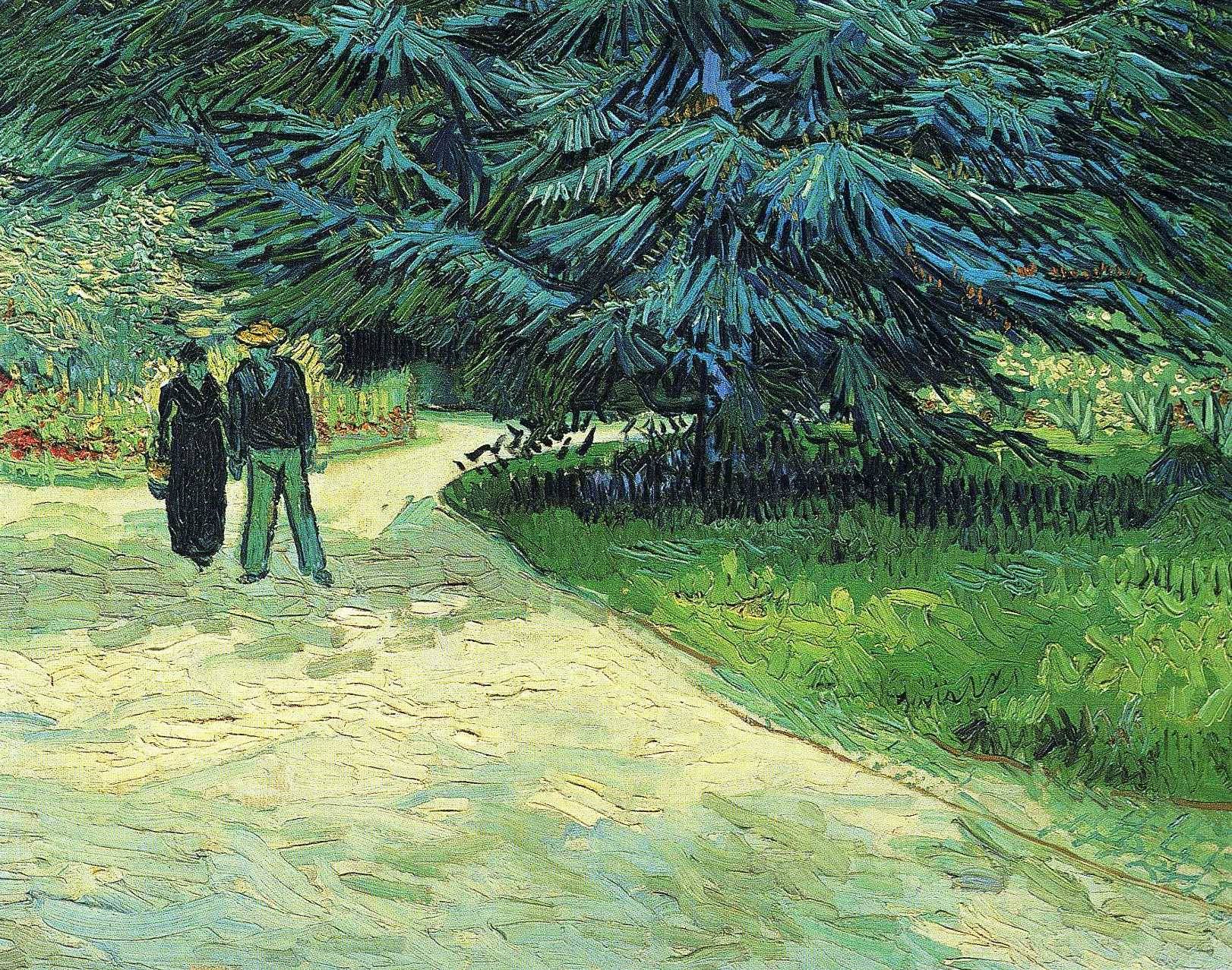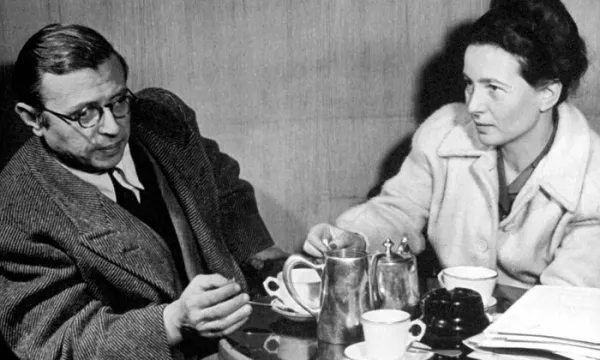
Authentic Love: Simone de Beauvoir on What Makes a Healthy Relationship
Simone de Beauvoir suggests that for a relationship to be healthy, it must augment the freedom of those involved, rather than diminish it. ‘Authentic love’ revolves around reciprocity and respect, not enforced self-sacrifice.

What does a healthy adult relationship look like? What does an unhealthy adult relationship look like? Is there a way we can better approach relationships?
For the French existentialist philosopher Simone de Beauvoir, the answers to all these questions tend to revolve around one core theme: freedom.
It is through respecting and promoting one another’s freedom, Beauvoir suggests, that we can cultivate healthy, authentic relationships of mutual benefit.
Before we can dive deeper into Beauvoir’s views here, however, we need to briefly establish why freedom plays such a crucial role in her wider philosophy.

The importance of freedom in Beauvoir’s philosophy
Throughout her rich body of work (see my list of Beauvoir’s best books here), perhaps the key ethical principle upheld by Beauvoir is that it is wrong to interfere with or tyrannize the freedom of others — specifically, the free choices of others.
Why? Well, as an existentialist, Beauvoir broadly subscribes to the view that existence precedes essence: that we are not born with a fixed ‘essence’, but that we create and recreate ourselves as we move through time.
By doing what we freely choose to do, we thus shape our own ‘essence’, and derive meaning and value from our free individual choices.
Undermining someone’s capacity to make a free choice thus robs them of the ability to authentically create themselves, Beauvoir thinks, and saps meaning and value from their lived experience.
If we value our own freedom, Beauvoir observes, then it is inconsistent not to value the freedom of others.
We thus have a shared obligation to uphold one another’s agency and respect each other’s freedom. In her 1947 work The Ethics of Ambiguity, Beauvoir writes:
To will oneself free is also to will others free.
And it is this principle that undergirds her theory on what authentic love looks like from an existentialist point of view.
By practicing authentic love, Beauvoir notes, we can form relationships that, rather than apply constraints on freedom, promote the individual liberty and growth of all involved.
Authentic love vs. narcissistic love vs. devotional love
So, what is authentic love? How can we cultivate healthy, freedom-enhancing relationships with our friends, families, and partners? To shed light here, Beauvoir first presents two problematic kinds of love: that of narcissism, and that of devotion.
A narcissistic relationship is characterized by self-interest, Beauvoir writes in an early notebook:
[it means] loving oneself and loving in the other, the love he has for you.
In other words, the narcissistic person loves themselves, and values the other person simply for the love they also have for the narcissist.
On the other side of this coin is the love of devotion, a love of ‘self-abnegation’ in which the devoted person sacrifices everything — their projects, goals, opinions — for the other.
Both narcissistic and devotional relationships are problematic, Beauvoir thinks, because they undermine the freedom of those involved.
The narcissist cares only for their own freedom, and thus denies the other’s; the devoted person, meanwhile, cares only for the other’s freedom, and thus denies their own.
By deferring absolutely everything to the other, the devoted person relinquishes control over their own freedom, and thus slips into what existentialists call ‘bad faith’.
Bad faith means limiting your own freedom — be it consciously or subconsciously — by living according to the opinions of others. Rather than authentically create yourself through free choice, you outsource your decision-making to convention, society, the other...
A love of absolute devotion is a particularly subtle form of bad faith, Beauvoir thinks, for it is often dressed up as ‘selflessness’ or ‘duty’.
In one concise email each Sunday, I break down a famous idea from philosophy. You get the distillation straight to your inbox:
💭 One short philosophical email each Sunday. Unsubscribe any time.
A woman’s duty
Living in ‘bad faith’ is not all our own doing: we grow up with cultural narratives that serve to ‘mystify’ us about our own freedom and existential potential, Beauvoir claims — narratives that might even encourage us to think it’s ‘natural’ to play a certain role.
Writing in the 1940s and 50s, Beauvoir argues that women in particular are subject to such mystification about their own freedom. In her 1949 work The Second Sex, she writes:
It is difficult for men to measure the enormous extent of social discrimination that seems insignificant from the outside and whose moral and intellectual repercussions are so deep in woman that they appear to spring from an original nature.
The cultural ideal for women, Beauvoir goes on to observe, is to cultivate marriages of devotion and self-sacrifice, whereby their individuality is subsumed in favor of fixed, predefined, ‘feminine’ roles like ‘wife’ and ‘mother’.
But this kind of default blueprint for women — i.e. to become creatures of devotion — is a recipe for creating relationships that foster inauthenticity, resentment, and bad faith, Beauvoir thinks. In a 1950 essay, she asks:
Is it not possible to conceive a new kind of love in which both partners are equals — one not seeking submission to the other?
Such relationships, she writes in The Second Sex, would form a middle ground between devotion and self-interest: they’d be
founded on the mutual recognition of two liberties… [where] neither would give up transcendence [and] neither would be mutilated.
Meeting as equals — as unique individuals with their own potential for becoming, self-making, and flourishing — neither party subordinates the other nor allows themselves to be subordinated.
Towards an authentic love
This kind of love is authentic, Beauvoir thus thinks, because it augments the existential potential of the people involved, rather than diminishing it; it is based on principles like reciprocity and equilibrium, rather than exploitation and self-abnegation; and it promotes freedom and becoming, rather than bad faith.
When it comes to forming healthy, life-enhancing relationships, then, expecting one party to embrace absolute devotion is just as harmful as allowing one party to practice utter self-interest.
To really improve our lives with love, we must approach our connections with others as we approach life: authentically, without slipping into roleplaying or bad faith.
Not seeking to control one another, not seeking to sacrifice ourselves for one another; but striving to bring out the best in each other — to help each other fulfill our existential potential and freely become who we are.
What do you make of Beauvoir’s analysis?
- Do you agree with Beauvoir that healthy adult relationships recognize and promote the freedom of all involved?
- How might we reconcile respecting someone’s free choice with advising them on what we think is the best course of action? At what point does care and advice become interference?
- What qualities have the best relationships in your life consisted of?
Learn more about Beauvoir and existentialism
If you’re interested in learning more about Beauvoir and existentialist philosophy, consider checking out my brief introduction to existentialism as both a movement and philosophy. You might also like my reading lists of Beauvoir’s best books and existentialism’s best books, as well as the following related reads:
- Existence Precedes Essence: What Sartre Really Meant
- Sartre’s Waiter, ‘Bad Faith’, and the Harms of Inauthenticity
- Heidegger On Being Authentic in an Inauthentic World
- Kierkegaard On Finding the Meaning of Life
- Nietzsche on Friends Growing Apart
- Plato’s Scala Amoris: the Ladder of Love
- Erich Fromm on Why Love is Not About Finding ‘the One’
- Kierkegaard: Life Can Only Be Understood Backwards, But It Must Be Lived Forwards
- Aldous Huxley: Other People’s Lives are Ultimately Unknowable
Finally, if you enjoyed this article, you might like my free Sunday breakdown. I distill one piece of wisdom from philosophy each week; you get the summary delivered straight to your email inbox, and are invited to share your view. Consider joining 20,000+ subscribers and signing up below:

From the Buddha to Nietzsche: join 20,000+ subscribers enjoying my free Sunday Breakdown
In one concise email each Sunday, I break down a famous idea from philosophy. You get the distillation straight to your inbox.
💭 One short philosophical email each Sunday. Unsubscribe any time.
About the Author

Get one mind-opening philosophical idea distilled to your inbox every Sunday (free)

From the Buddha to Nietzsche: join 20,000+ subscribers enjoying a nugget of profundity from the great philosophers every Sunday:
★★★★★ (100+ reviews for Philosophy Break). Unsubscribe any time.

Take Another Break
Each break takes only a few minutes to read, and is crafted to expand your mind and spark your philosophical curiosity.





